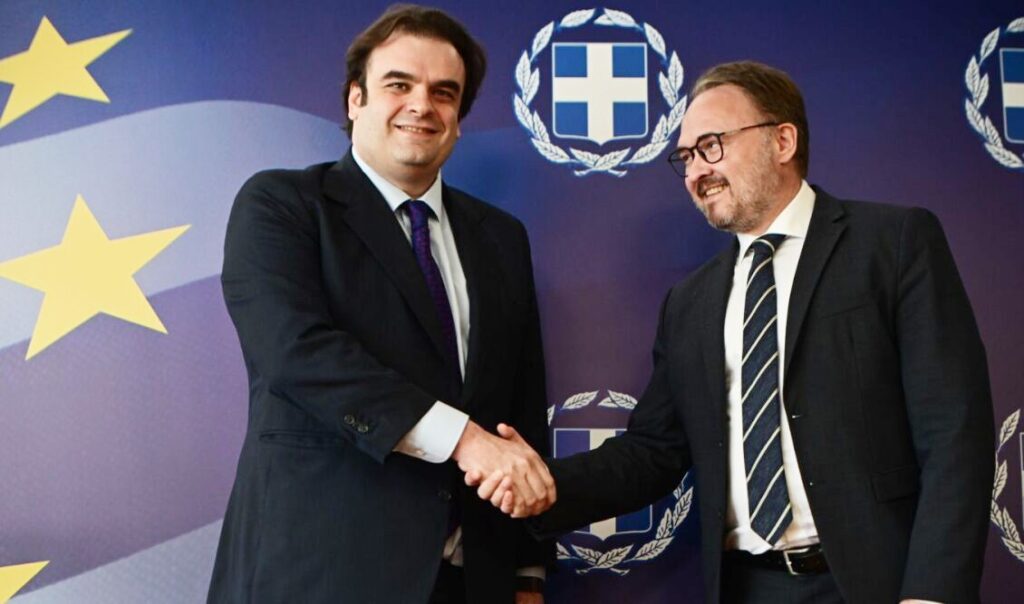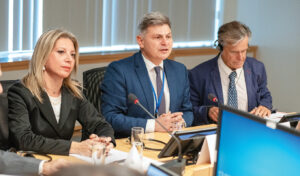The meeting between Minister of National Economy and Finance Kyriakos Pierrakakis and European Commissioner for Energy and Housing Dan Jørgensen focused on two major issues: reducing energy prices and increasing citizens’ access to housing.
Read: Kyriakos Mitsotakis: Met with Commissioner Dan Jørgensen – Discussion on reducing energy prices
Specifically, during the meeting held at the Ministry of National Economy and Finance, discussions centered on energy matters aimed at cost reduction, as well as housing issues, which remain high on the Government’s agenda.
Mr. Pierrakakis emphasized that the government’s priority is reducing energy costs for households, businesses and industry, through investments in interconnections, accelerating licensing procedures and completing the internal market.
He noted that Greece is making progress in the green transition, with over 50% of electricity generation from renewable sources, while the target is 80% by 2030.
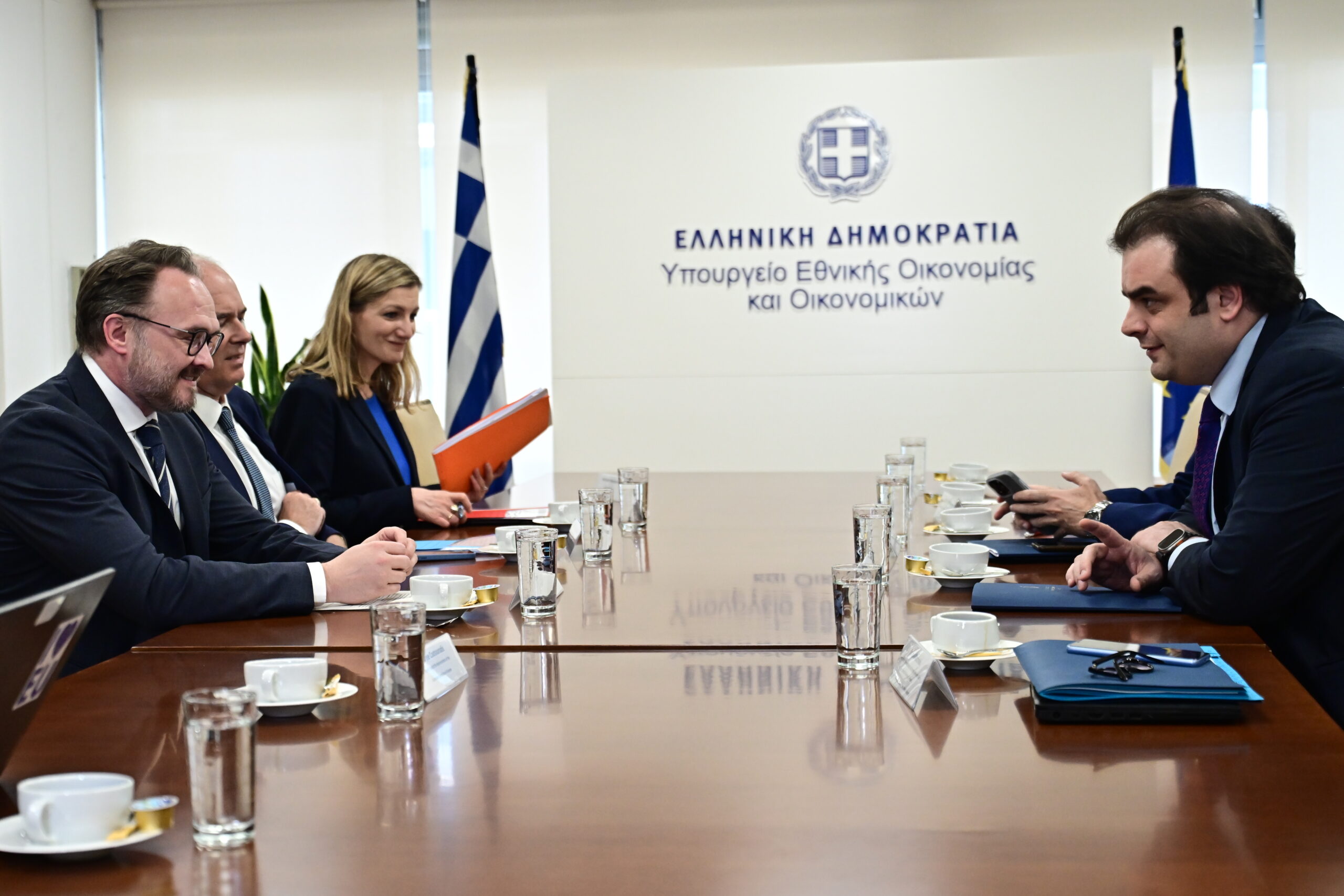
Additionally, the need for affordable housing was discussed, with emphasis on vulnerable households, within the framework of the EU’s cohesion policy review, while he reminded that through “Greece 2.0,” energy upgrades and housing support policies are being promoted.
Commissioner Jørgensen praised Greek progress in renewables, noting that energy costs must be reduced and interconnections strengthened. He also expressed support for Greece’s housing policy and assured continued cooperation within the framework of the new Multiannual Financial Framework.
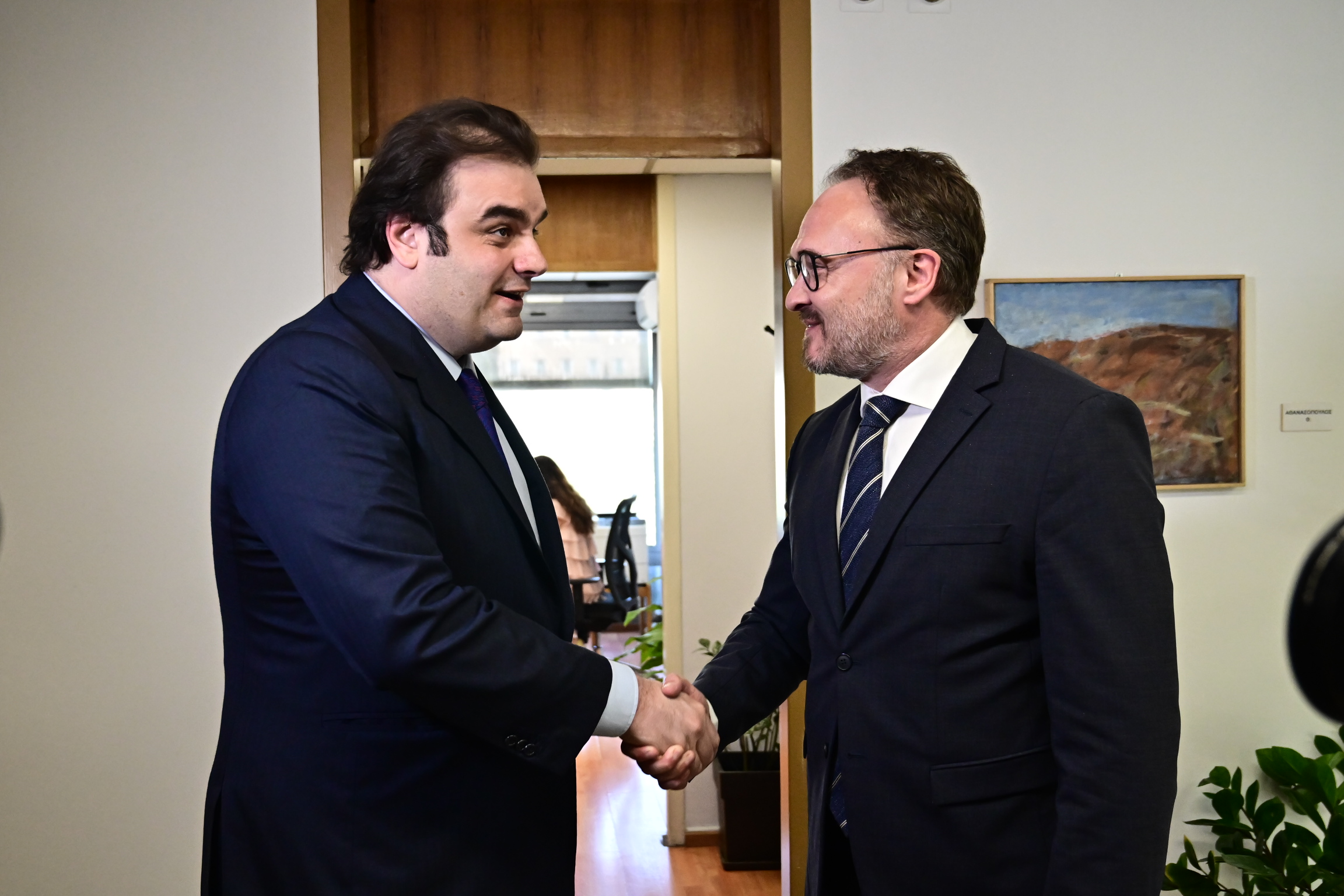
Immediately after the meeting, statements followed.
In detail, the Minister of National Economy and Finance stated:
“I welcome Commissioner Dan Jørgensen to the Ministry of Finance.
His portfolio focuses on two issues of critical importance to the daily lives of European citizens: affordable energy and sustainable housing.
Especially on the energy issue, what matters to citizens is the steady reduction of costs. Energy must be clean and economically accessible to all – for households, small businesses and industry. This constitutes a consistent Greek position and a common European challenge.
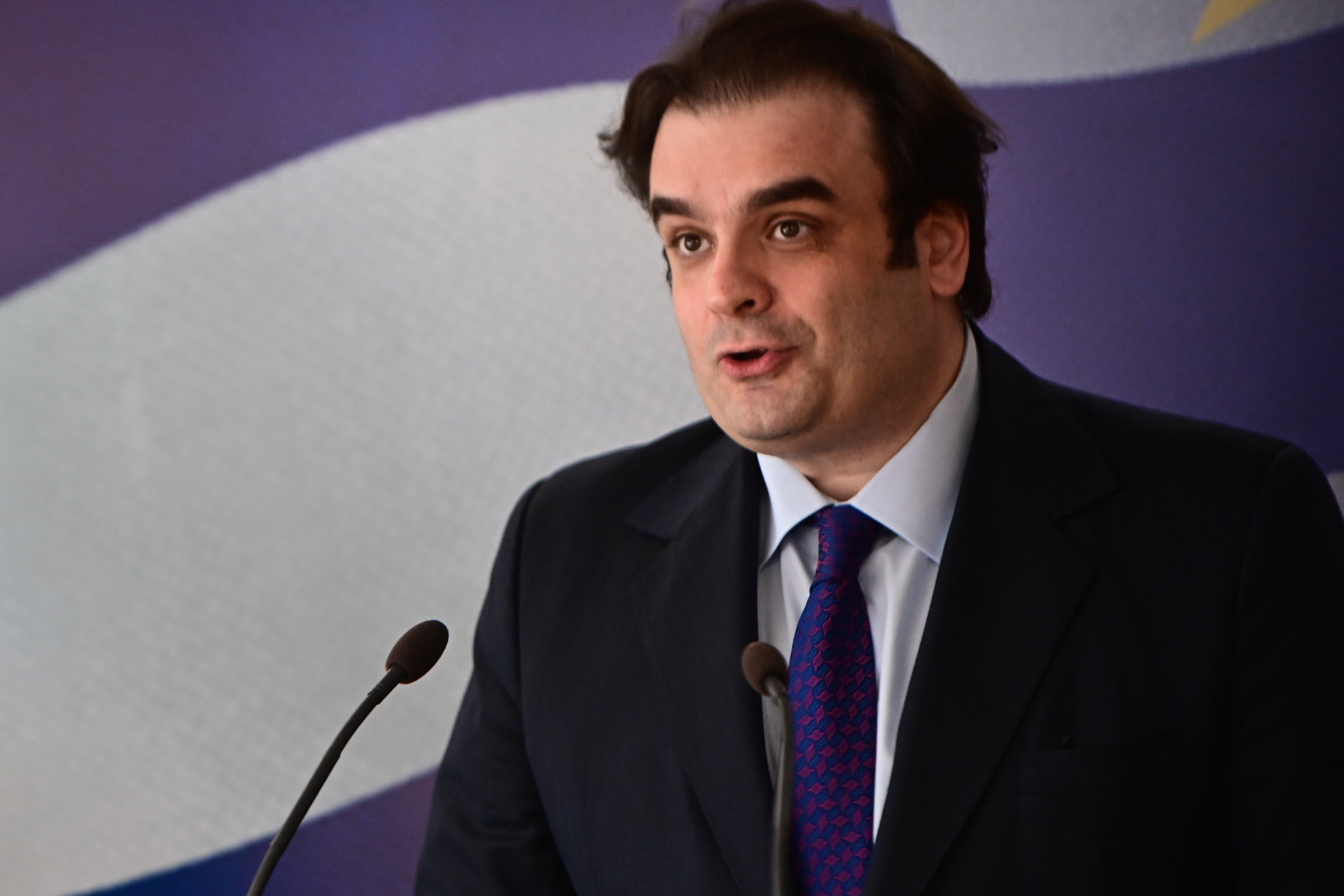
The Commissioner’s visit takes place on the occasion of the 20th anniversary of the signing in Athens of the Treaty establishing the Energy Community. This anniversary provides an opportunity to reaffirm our commitment to an Energy Union that serves citizens – with security, adequacy and low cost.
To achieve this, Greece actively supports:
- strengthening interconnections,
- accelerating licensing procedures, and
- completing the internal energy market.
I should mention here that Greece is already recording significant progress in green energy: over 50% of our electricity generation comes from renewable energy sources, with the goal of reaching 80% by 2030. With steady steps, we hope and aspire to evolve into a regional hub for clean and certainly cheaper energy.
I should also say that affordable energy means less economic pressure for families, more competitiveness for businesses and stability for society.
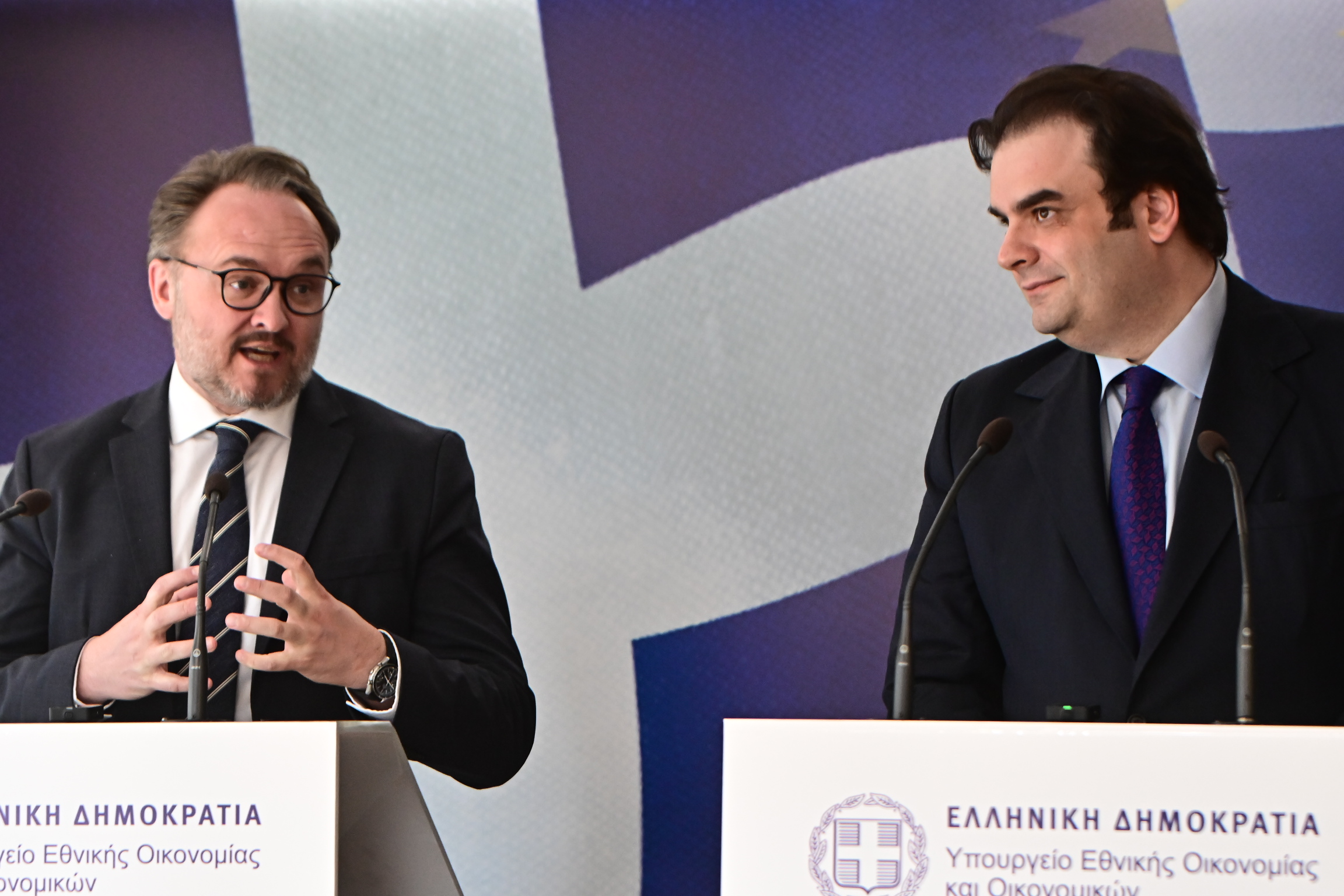
We also discussed the need to ensure affordable housing for all, a need that constitutes a top social priority for our government.
We welcome the Commission’s decision to recognize housing as a basic social objective, within the framework of the mid-term review of cohesion policy.
And of course we support the simplification of procedures and the utilization of all available financing instruments, aimed at improving energy efficiency and reducing housing costs, especially for the most vulnerable households.
Through “Greece 2.0,” we implement:
- extensive energy upgrades in public and private buildings, and
- modern housing support policies, with financial and tax incentives.
- The green transition, affordable energy and housing are interconnected policies – and absolutely critical for society’s resilience and the economy’s competitiveness.
Greece is ready to actively contribute to this common European goal.
In a spirit of cooperation, we work for a greener, fairer and more competitive Europe that responds to the needs of all citizens.”
Welcoming Commissioner Dan Jørgensen, the Minister stated that: “these objectives are reflected in the Commission’s proposal for the next Multiannual Financial Framework (MFF).
Greece approaches the upcoming negotiations with a constructive spirit, seeking a balanced outcome that reflects both our common goals and our national priorities.
For his part, EU Commissioner for Energy and Housing Dan Jørgensen stated the following:
“Thank you very much, Mr. Minister.
I also thank all of you for a very constructive and fruitful meeting. The Greek government shares many of the goals we have set and, Mr. Minister, I thank you warmly for your kind words regarding the proposal we submitted yesterday for the European Union’s new long-term budget.
I would be surprised if you weren’t satisfied with some of the points, because they actually reflect —at least in a way— a very important decision by your government, including statements by the Greek Prime Minister, who has emphasized that better interconnection between Europe’s national energy systems is required. This is absolutely critical.
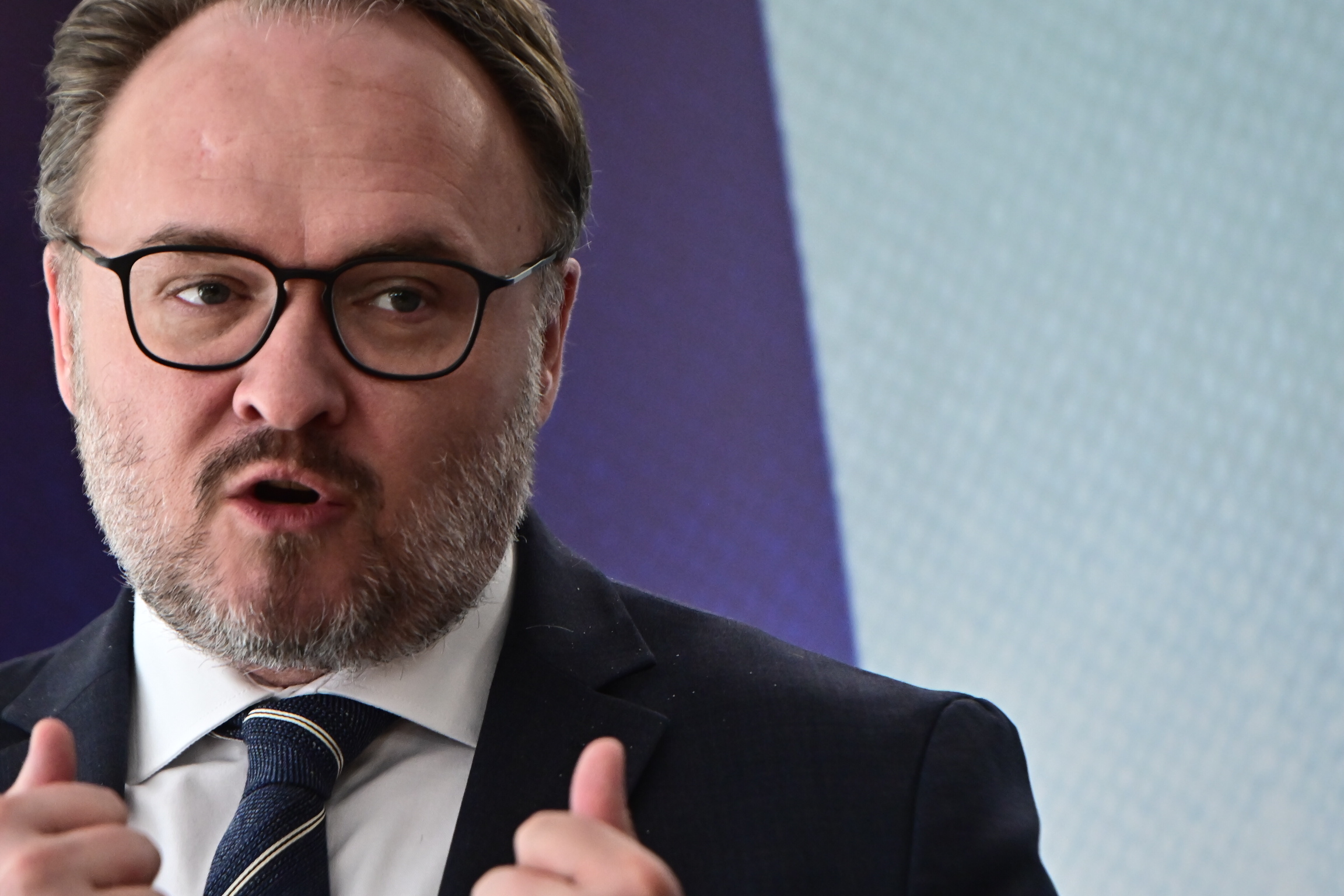
Greece is in a somewhat paradoxical position: on one hand, you are pioneers in green forms of energy – all countries should follow your example, as it reduces costs and contributes to carbon emission reduction. On the other hand, energy prices remain excessively high – something that clearly needs to change. From the European Commission’s side, we will do everything in our power to help you address this situation. One way is to give greater emphasis to physical infrastructure, so that Greece is better connected to the rest of the European network — and we can assure you that we will do this.
Regarding housing, we also share the Greek government’s goal of ensuring more affordable housing, especially in the social housing sector. The ability to have an affordable home is one of the most basic needs of citizens. We take your government’s concerns very seriously and, whatever we can do from the European Union’s side to help, we will do. This is also reflected in the Multiannual Financial Framework.
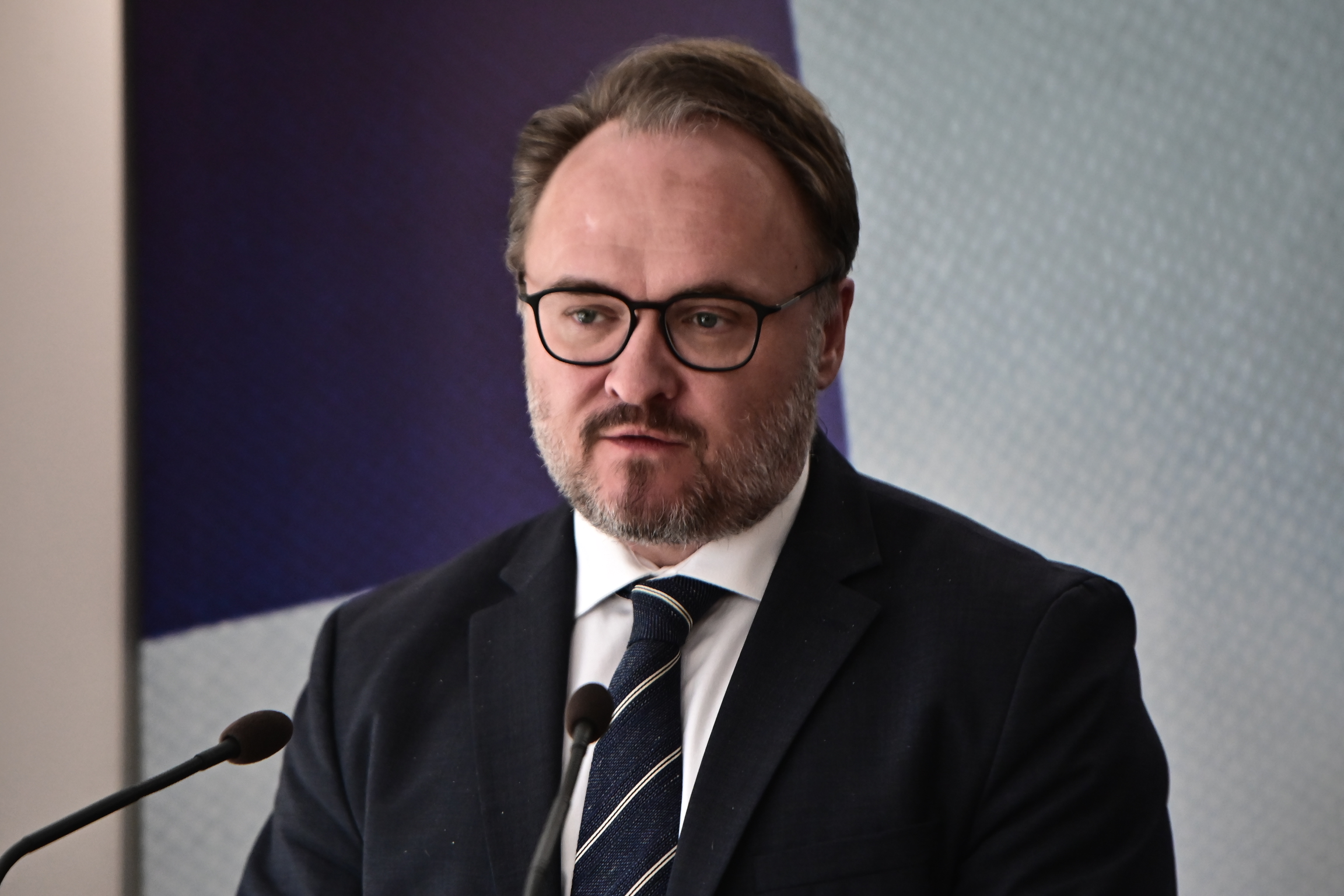
With these words, Mr. Minister, I thank you again for this useful meeting. We will remain in close contact and I will continue to listen to your views as we move forward with our work.”

